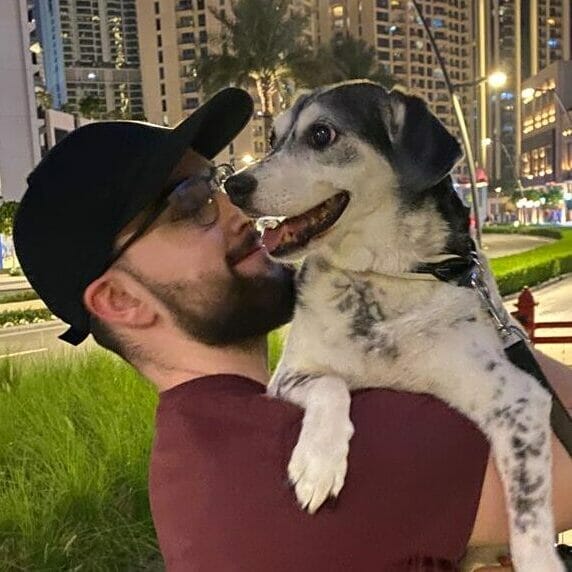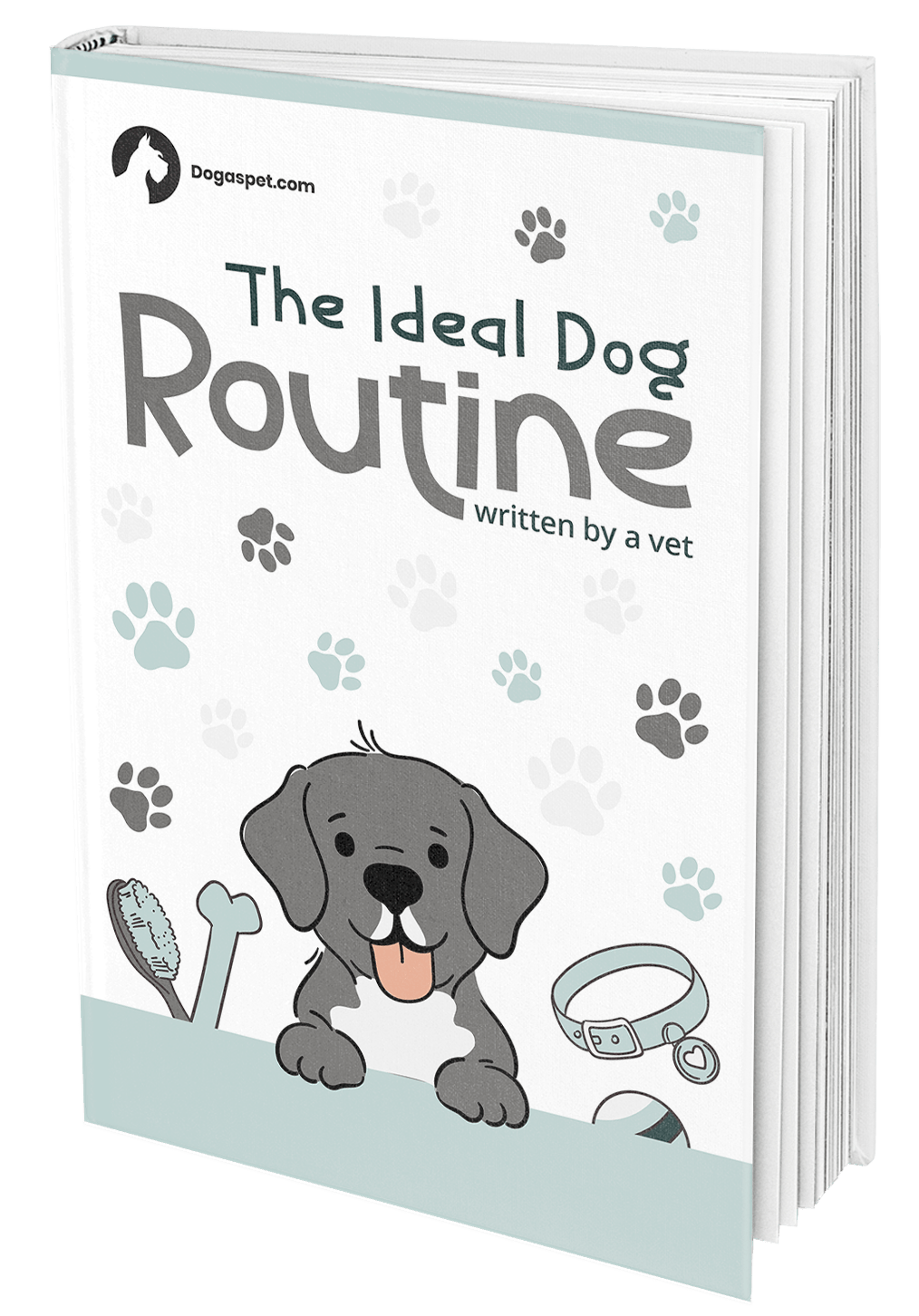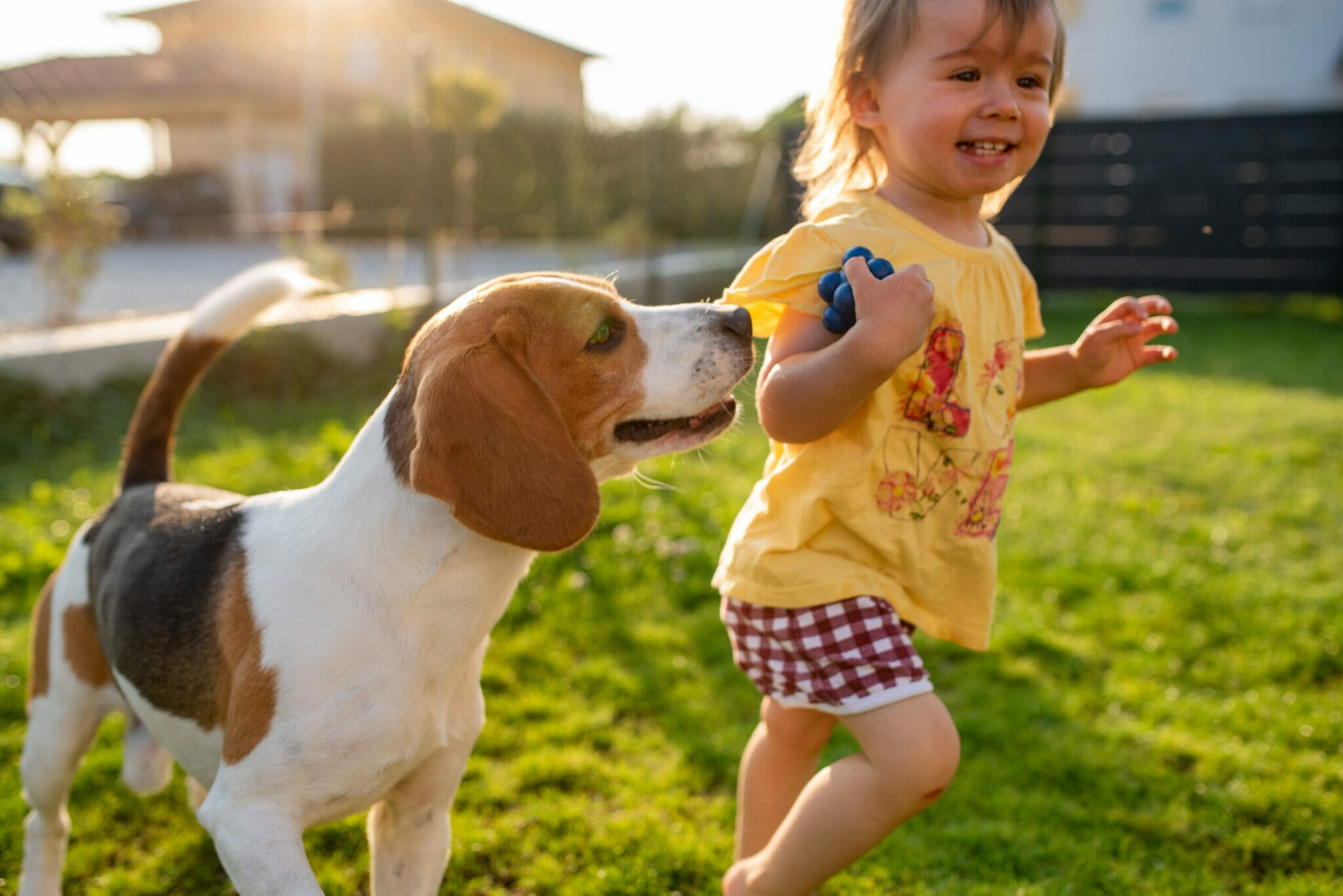
What do you imagine when you talk about dogs? Agile, always on the move, full of energy! Yes, these are some words you can undoubtedly associate with a dog.
However, it can be sad to see if your adorable fur friend avoids activity sessions or doesn’t play anymore. If your furry friend is not playful anymore, you’re not alone, as many owners go through this phase at some point.
Lack of interest in activities can be due to various reasons, and today we will walk you through some of them. This post will also provide some solutions that will help your dog find its lost passion.
So without further ado, let’s dive deep.
Table of contents
Dog doesn’t play anymore – Reasons
As mentioned earlier, there can be multiple reasons why your dog isn’t playing anymore. It can be due to a health issue, depression, or even a natural cause like older age that’s forcing your dog to stay out of playful activities.
Here are some of the reasons which can make your dog less interested in playing.
The age of your dog
Dogs are very energetic when they are young. But as dogs get older, they tend to lose interest in playful activities. You can witness this trait if you follow them closely, as adult dogs or seniors do not display the same characteristics as puppies.
Furthermore, some breeds like English Bulldogs are not as active as other dogs, so losing interest in playful activities is more evident in such breeds.
In short, if you have a senior dog, you should not expect him to play like a puppy. However, if you have a younger dog that is not interested in playful activities, you may have to consider other possibilities to identify the problem.
Health problems
Whether young or old, a health issue with your dog will undoubtedly decrease his interest in activities.
For instance, infected teeth or gum can decline your dog’s desire to play, as your fur friend will not be able to chew on his favorite toys. Likewise, obesity and respiratory problems can force your dog to stay away from activities.
Excessive weight can also result in painful joints, which can hinder your dog’s physical performance required for playful activities.
Besides health issues related to obesity, cognitive dysfunction and arthritis can also creep in when a dog grows old. However, adult dogs can also develop these conditions due to different reasons.
So if your dog is not behaving naturally, it would be best to conduct a thorough inspection or seek professional help.
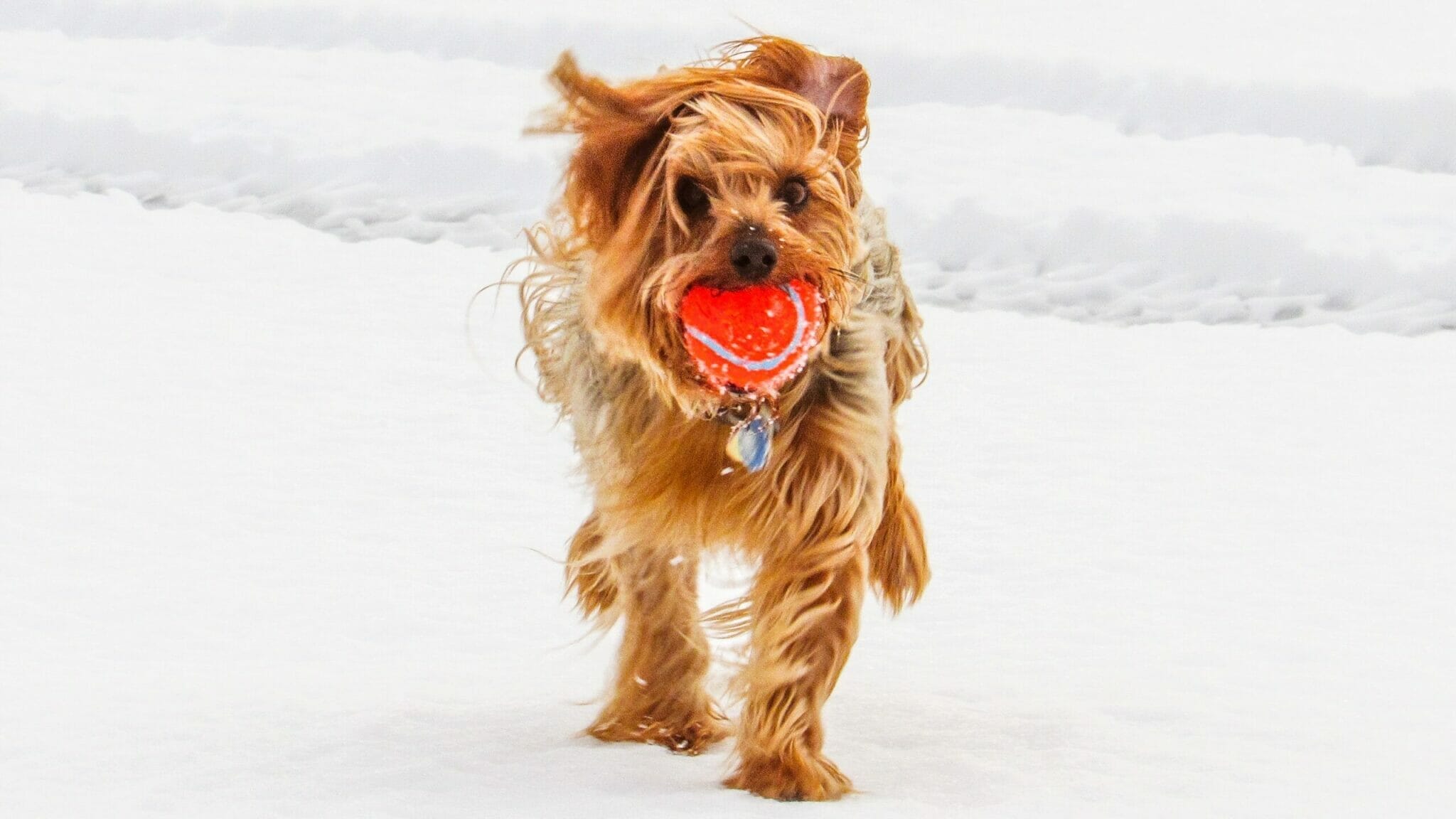
Depression
If your dog shows signs of fear, lack of interest, or even aggression, it can indicate that it is suffering from depression. Yes, depression is not only limited to humans as it can also develop in dogs.
There are many reasons for depression, like post-trauma, learned helplessness, or lack of physical or mental stimulation.
Since dogs have emotions, a bad mood can trigger depression, which might force your dog to stay away from playful activities. In short, symptoms like appetite loss, lack of interest, or decreased playfulness indicate that your dog is suffering from depression.
However, depression can also be a product of health problems, so keeping a close watch on sleeping habits and appetite will help you identify those problems.
Wrong approach
Besides age or health issues, your wrong approach can also make your dog less excited about playful activities.
For instance, dog owners use some sort of signal to communicate with their dogs, known as “play signals.”
However, recent studies indicate that all dogs react to these signals differently. In short, the signal that has been working for one dog might not work with another dog.
Furthermore, your body language and physical involvement also trigger your dog’s excitement.
For instance, running and chasing your dog will stimulate your dog’s mind and make him more interested in playing with you than patting the floor. Likewise, participating in other physical activities with your dog will increase excitement and engagement.
So, choosing the right approach is crucial to keeping your dog involved in playful activities.
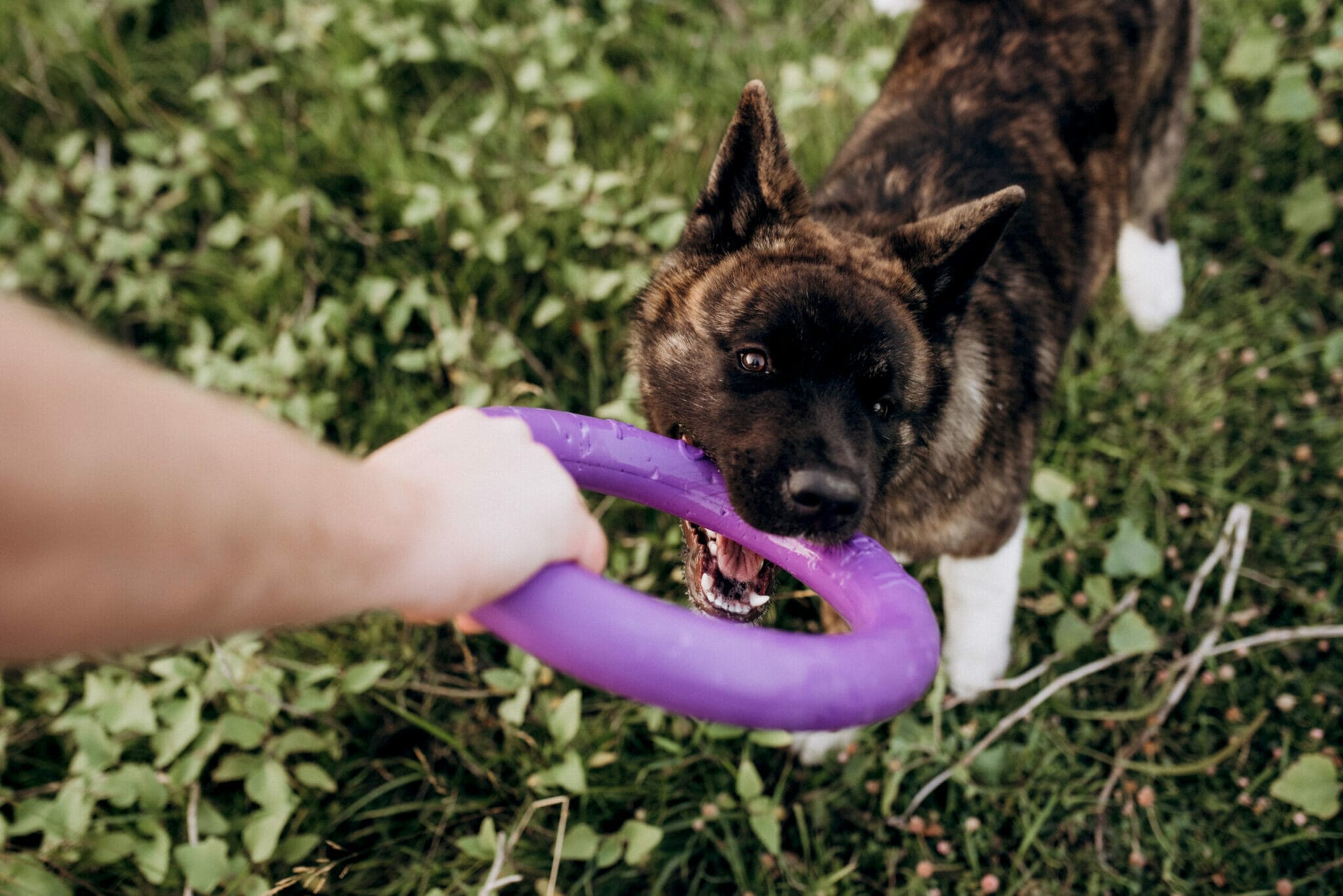
What to do if your dog doesn’t play anymore?
Here are the things you can do if your dog doesn’t play anymore.
Use interactive toys
One of the best ways to boost engagement levels for your dog is to offer them interactive toys. These toys stimulate your dog’s mind more than a wooden stick, so engagement levels will be high.
You can also introduce puzzle toys to stimulate your dog’s brain, which will undoubtedly yield positive results.
Positive body language
The relationship between a dog and its owner must have 50-50 involvement, which is also evident when you start an activity session. If you want your dog to play, but you’re not putting any effort, it will portray a wrong signal to your dog.
This inappropriate body language might frustrate your dog, and he may lose interest in playful activities. So, sticking to positive body language and displaying your interest in playing with your dog can boost your dog’s excitement and engagement.
Take time
Sometimes dogs may not cope with an activity in an instant, which can make you disheartened. However, if you give your dog some time, your dog will learn this activity.
Health examination
If your dog is not interested in playing, you may have to conduct a medical check to determine the problem. Sometimes health issues like obesity, teeth infection, or respiratory problems can also hurt your dog’s playful nature.
You can take your dog to a professional vet to solve these health problems.

Wrapping Up
There are many reasons why your dog isn’t playing anymore, which can also include your inappropriate body language. Regardless of what the matter may be, you can solve this problem by implementing ways to increase your dog’s engagement.
Always keep in mind that you do not force or compel your dog to play, as it can make things worse.
